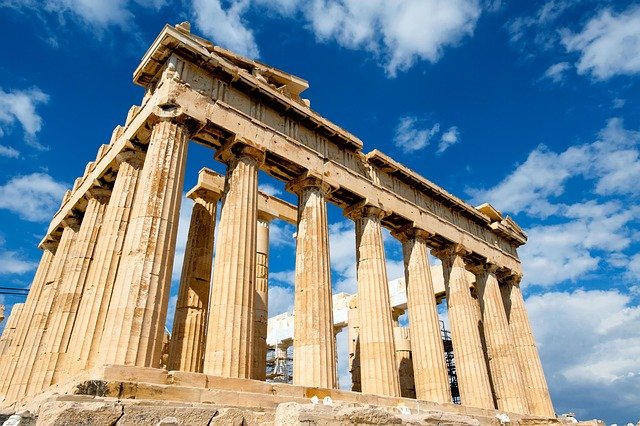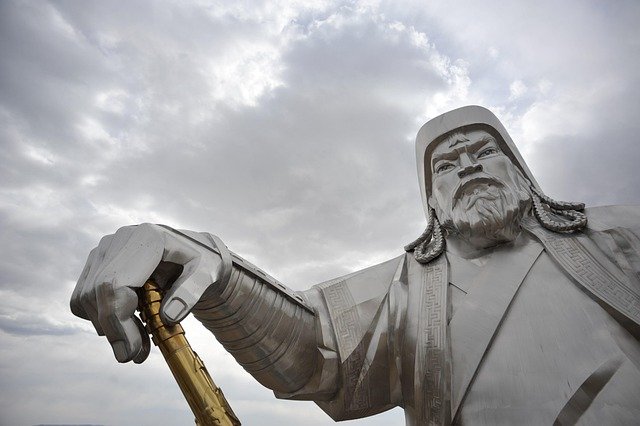
The Greek Empire, often called Ancient Greece, is one of the most influential civilizations in world history. From philosophy and science to politics, art, and warfare, the Greek world laid the foundation for much of Western civilization. Though it was not a single, unified empire like Rome, the Greek world consisted of city-states (called polis), and later expanded under the leadership of Alexander the Great into a powerful empire stretching from Greece to India.
1. The Birth of Ancient Greece (c. 800 BC – 500 BC)
Ancient Greece emerged after the decline of the Mycenaean civilization and the Greek Dark Ages. During this early period, city-states like Athens, Sparta, Corinth, and Thebes began to rise.
Key Features:
- Independent governments
- Shared language and religion
- Common festivals (e.g., Olympic Games)
The city-states were often at war with each other but united culturally and religiously.
2. The Golden Age of Greece (5th Century BC)
The 5th century BC was the Golden Age of Athens and a high point of Greek civilization.
Major Highlights:
- Philosophy: Socrates, Plato, and Aristotle changed human thought forever.
- Architecture: Temples like the Parthenon were built.
- Democracy: Athens introduced the world’s first form of direct democracy.
- The Arts: Greek drama, sculpture, and literature flourished.
Athens became the intellectual heart of the Greek world, while Sparta was known for its military strength.
3. Wars and Conflicts
Greek history is filled with wars that shaped its destiny:
Persian Wars (490–479 BC)
- United Greek city-states fought off the powerful Persian Empire.
- Key battles: Marathon, Thermopylae, and Salamis.
Peloponnesian War (431–404 BC)
- Athens vs. Sparta.
- This war weakened all of Greece and paved the way for Macedonian conquest.
4. The Rise of Macedonia and Alexander the Great (336–323 BC)
After the Greek city-states were weakened, King Philip II of Macedon conquered them. His son, Alexander the Great, became one of history’s greatest military leaders.
Achievements of Alexander:
- Created one of the largest empires in history.
- Conquered Persia, Egypt, and parts of India.
- Spread Greek culture, language, and ideas across Asia.
This era is called the Hellenistic Period—a fusion of Greek and Eastern cultures.
5. The Hellenistic World (323–30 BC)
After Alexander’s death, his empire broke into several kingdoms, ruled by his generals:
- Ptolemaic Egypt
- Seleucid Empire (Middle East)
- Antigonid Macedonia
These kingdoms continued Greek traditions while blending with local cultures. Alexandria in Egypt became a center of science, art, and literature.
6. Greek Influence on the Roman Empire
The Greek Empire was eventually absorbed by the Roman Empire, but its influence only grew stronger.
Greek Legacy in Rome:
- Romans adopted Greek gods (renamed them)
- Greek philosophy influenced Roman education
- Roman architecture copied Greek styles
Greek culture became the backbone of Roman civilization.
7. The Legacy of Ancient Greece Today
The Greek Empire may have ended, but its impact remains alive in:
- Democracy: The foundation of many governments
- Philosophy and science
- Architecture: Columns and symmetry still used today
- Olympic Games
- Theater and Literature
Greek is considered the cradle of Western civilization.
Conclusion
The Greek Empire was not just a military power—it was a civilization of ideas, intellect, and artistic beauty. From the democratic streets of Athens to the conquest of Alexander the Great, Greece changed the world. Its spirit lives on in modern philosophy, science, government, and culture.
The story of Ancient Greece reminds us that knowledge, unity, and ambition can shape the world for thousands of years.

